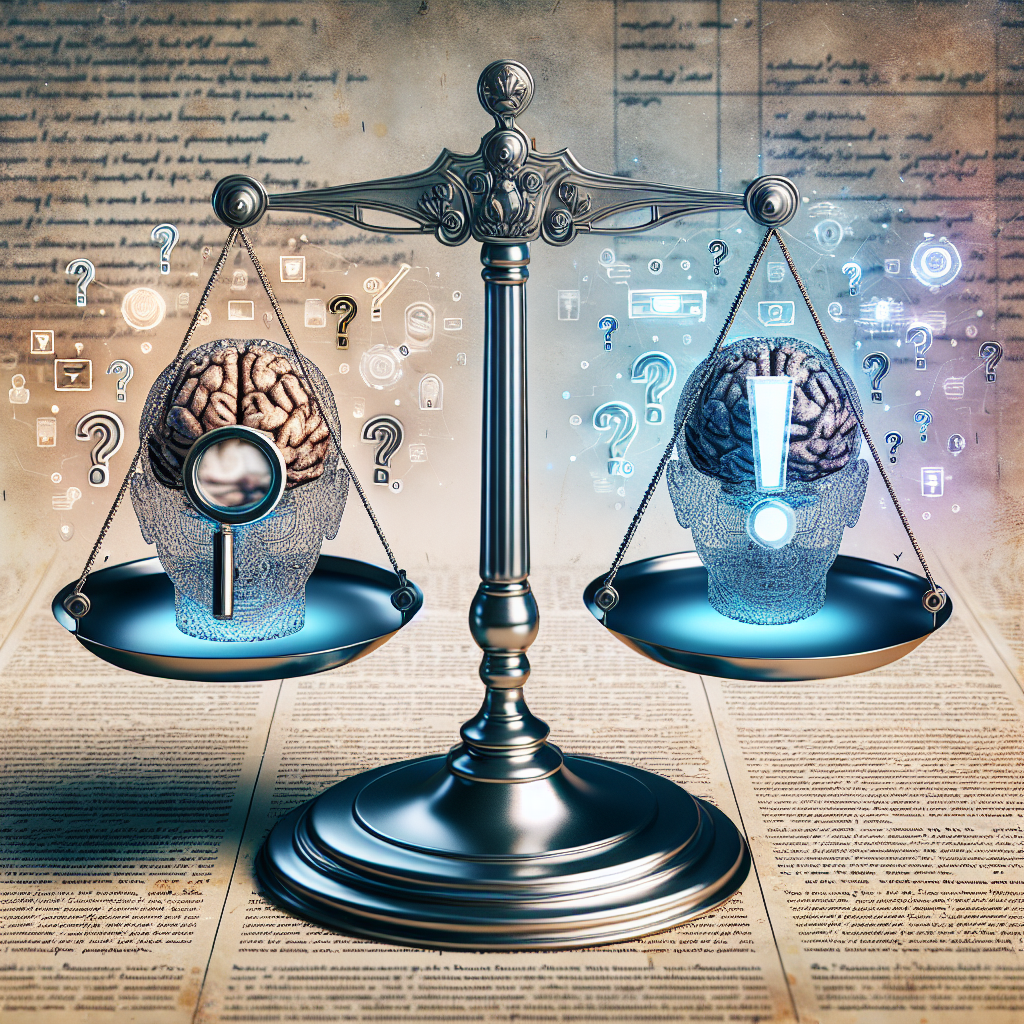Artificial Intelligence (AI) has become an integral part of many aspects of our lives, including criminal profiling. AI technologies are increasingly being used by law enforcement agencies to help identify and apprehend criminals. However, the use of AI in criminal profiling raises a number of ethical and legal implications that must be carefully considered.
Ethical Implications
One of the main ethical concerns surrounding the use of AI in criminal profiling is the potential for bias. AI systems are only as good as the data they are trained on, and if this data is biased in any way, it can lead to biased outcomes. For example, if an AI system is trained on data that disproportionately represents certain demographic groups as criminals, it may unfairly target individuals from those groups for investigation.
Another ethical concern is the lack of transparency in how AI systems arrive at their conclusions. Unlike human analysts, AI systems are often seen as “black boxes” whose decision-making processes are difficult to understand. This lack of transparency can make it difficult to hold AI systems accountable for their actions and decisions.
There is also the issue of privacy and consent. The use of AI in criminal profiling often involves the collection and analysis of large amounts of data, including personal information about individuals. This raises concerns about the potential for privacy violations and the need for informed consent from those being profiled.
Legal Implications
From a legal standpoint, the use of AI in criminal profiling raises a number of important questions. One key issue is the potential for AI systems to infringe on individuals’ rights, such as the right to privacy and the right to be presumed innocent until proven guilty. If AI systems are used to make decisions about individuals’ guilt or innocence, there is a risk that these decisions may be based on flawed or biased data, leading to unjust outcomes.
There is also the question of accountability. If an AI system makes a mistake in its profiling of an individual, who is ultimately responsible for that mistake? Is it the programmer who designed the system, the law enforcement agency that deployed it, or the AI system itself? These questions are still largely unresolved and will need to be addressed as AI technologies continue to be used in criminal profiling.
Another legal concern is the potential for AI systems to be used for discriminatory purposes. For example, if an AI system is trained on data that reflects societal biases, it may perpetuate those biases in its profiling decisions. This raises questions about the legality of using AI systems in criminal profiling and the need for safeguards to prevent discrimination.
FAQs
Q: Can AI be used to predict criminal behavior?
A: AI can be used to analyze patterns in data and make predictions about future events, including criminal behavior. However, there are limitations to how accurately AI systems can predict criminal behavior, and there are ethical and legal implications to consider when using AI in this way.
Q: How can bias in AI systems be addressed?
A: Bias in AI systems can be addressed through a variety of methods, such as ensuring that the data used to train the AI system is diverse and representative of the population, and using algorithms that are designed to minimize bias. It is also important to regularly monitor and evaluate AI systems for bias and take corrective action when bias is detected.
Q: What are some of the benefits of using AI in criminal profiling?
A: Some of the benefits of using AI in criminal profiling include the ability to analyze large amounts of data quickly and efficiently, the potential for more accurate and objective decision-making, and the ability to identify patterns and trends that may not be immediately apparent to human analysts.
In conclusion, the use of AI in criminal profiling presents a number of ethical and legal challenges that must be carefully considered. While AI technologies have the potential to improve the efficiency and accuracy of criminal profiling, they also raise important questions about bias, transparency, privacy, and accountability. As AI continues to be integrated into law enforcement practices, it will be essential to address these challenges in order to ensure that AI is used in a fair and responsible manner.

